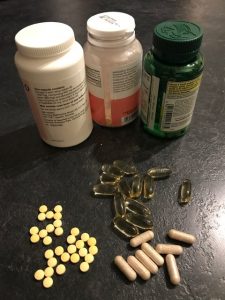
Drug development is an expensive and time-consuming process with a success approval rate of less than 5%. This emphasizes the need for an alternative drug development process. As specialists in the study of mechanisms of actions of drugs (Clinical Pharmacologists), we are primarily interested in finding new and important cardiovascular benefits for well-established medications that have been shown to be safe and has been licensed for other use. This type of research is popularly known as “re-purposing of drugs”. There are several advantages to this approach.
Firstly, in the current financial climate, where the costs of medications are rising and increasing pressure on the NHS, use of these well-established, often off-patent drugs, are extremely cost effective as we do not need to do early animal and human testing to get drugs that are suitable for human use.
Secondly, the side effects profile would generally be known.
Thirdly, by understanding the mechanisms of action by which these drugs exert their cardiovascular beneficial effects, we may be able to uncover new ways of treating cardiovascular disease. Our group has a strong track record of research in re-purposing drugs for cardiovascular use such as the use of spironolactone in heart failure and resistant hypertension, allopurinol in ischaemic heart disease and ACE inhibitors in aortic valvular heart disease. This research has helped transform lives globally as our research has been used as the underpinning evidence for global guidelines recommendations in cardiovascular disease.

A wide range of research tools have been used, including the latest imaging techniques using MRI for the heart, stress echocardiograms, ultrasound assessment of blood vessels and new blood markers of cardiac function and blood vessel function. Being largely supported by funders such as the British Heart Foundation, the Medical Research Council, European Union as well as smaller Scottish charities such as Tenovus Scotland and the Anonymous Trust has made a vast difference. The TICR facilities house these pieces of equipment as well as enable our clinical trials to run smoothly by providing rooms and staff to run these trials.
